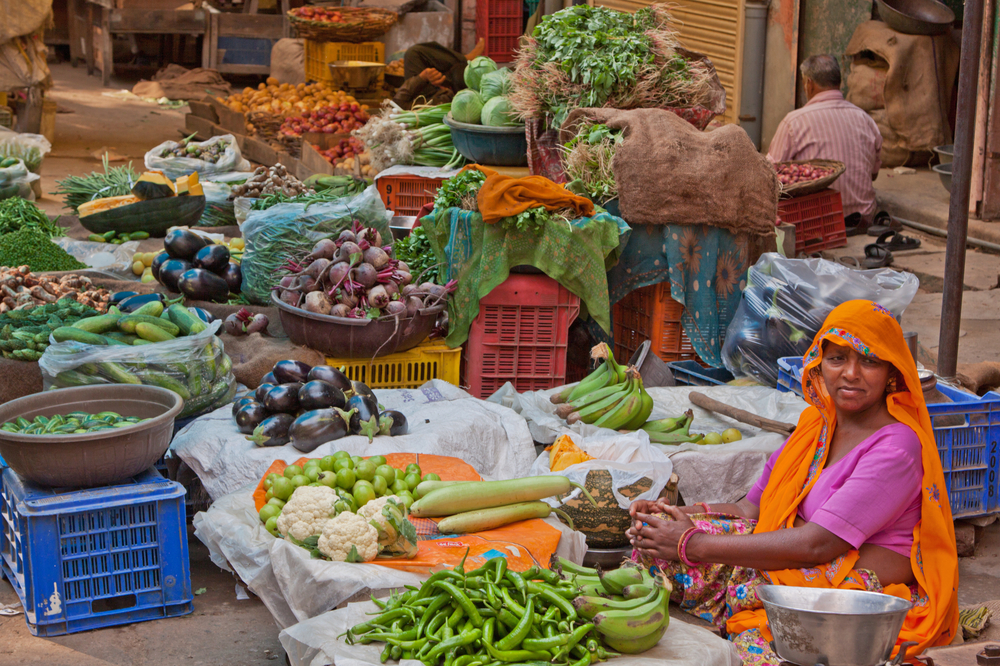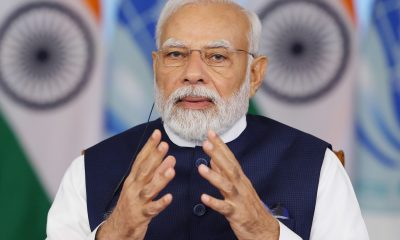Breaking
India slides in gender equality rank despite rapid economic growth; US climbs 3 spots to 20th
NEW DELHI—Indian women still face some of the world’s worst inequality in access to health care, education and work, despite years of rapid economic growth, according to a survey of 142 nations released Tuesday.
The annual Gender Gap Index by the Geneva-based World Economic Forum showed India falling to 114th place, after being ranked 101st out of the 136 countries surveyed last year. That puts India below other fast-developing nations including South Africa, ranked 18th, China at 87 and Brazil at 71.
Nordic nations led the world in promoting equality of the sexes, as they have for many years, with Iceland, Finland, Norway, Sweden and Denmark occupying the top five spots.
The United States climbed three places to 20th, thanks to a narrowing wage gap and more women occupying political offices.
“Achieving gender equality is obviously necessary for economic reasons. Only those economies who have full access to all their talent will remain competitive and will prosper,” Klaus Schwab, WEF founder and executive chairman, said in a statement.
Yemen, Pakistan and Chad remained at the bottom of the index, which ranks countries based on data reported by international organizations in four categories: health and survival, access to education, economic opportunity and political participation.
Overall, the report said gender equality is improving worldwide, with 105 countries becoming more equal since the forum launched the index in 2006 and health and education access being the most egalitarian across the globe.
“Much of the progress on gender equality over the last 10 years has come from more women entering politics and the workforce,” said the report’s lead author, Saadia Zahidi, who heads the forum’s Gender Parity Program.
India ranked a high 15th for female political participation, with some of its most powerful positions in government recently occupied by women.
But it was among the bottom 20 in terms of income, literacy, work force participation and infant survival.
China also has a low ratio of girls born to boys, which contributed to the country falling 18 spots. The highest-ranking Asian country was the Philippines, in ninth place.
Experts cautioned that the index, pitting countries against one another, may not reflect improvements on the ground. For example, while Ireland improved its overall score slightly, it still fell from sixth to eighth place as Nicaragua, Rwanda and Denmark moved up.
Indian voters fed up with the corruption and inequalities that have come with economic growth gave new Prime Minister Narendra Modi’s party an enormous election mandate this year after he campaigned on promises of a fairer society and a revived economy. Economic growth had been averaging 8 per cent for a decade before slumping to below 5 per cent in recent years.
Modi has also spoken publicly against rape and violence against women, giving many people hope for change after decades of political apathy in addressing concerns about women’s safety, high rates of maternal mortality and female infanticide. The Gender Gap Index placed India second to last, ahead of Armenia, in terms of women’s health care and survival.
Modi’s government has said it plans to launch a program next month to improve the health of pregnant woman and empower young girls.
“The intent looks good so far from the prime minister, but it’s too soon to say,” said Ranjana Kumari, director of the Delhi-based Center for Social Research, who called for more effort in guaranteeing that the nation’s wealth is used to benefit women and the poor.
“There is no natural trickle down. India needs legislation to make sure that happens,” she said.
India’s sex ratio for children under 7 has fallen to its worst level since the country gained independence in 1947, with 914 girls born for every 1,000 boys. It is illegal for medical workers to reveal the sex of a child before birth, to prevent families from aborting female babies.
Activists in India also said that while they’ve noted some progress in boosting the number of Indian girls in primary school, the overall lack of safety was still preventing many from travelling for higher education or taking jobs far from home. Others were simply not getting credit for the work they were doing, such as farming on land that is owned by a man.
“The thing that worries me the most is the work situation, because girls are getting fewer skills than boys, and so they have fewer opportunities than boys,” said Renana Jhabwala, national co-ordinator for the Self-Employed Women’s Association in India. “Women are an important part of the work force, they contribute to GDP, but they really are not regarded as workers and producers. It’s never become a political issue, and that has to change.”






















